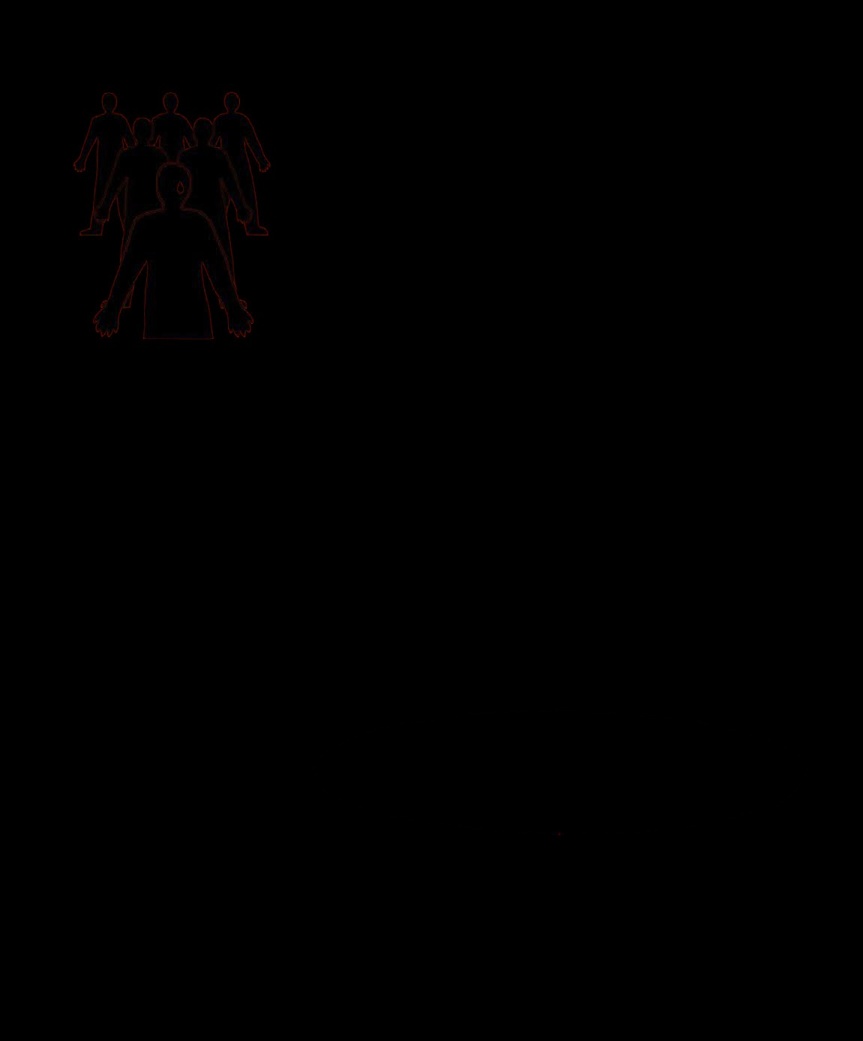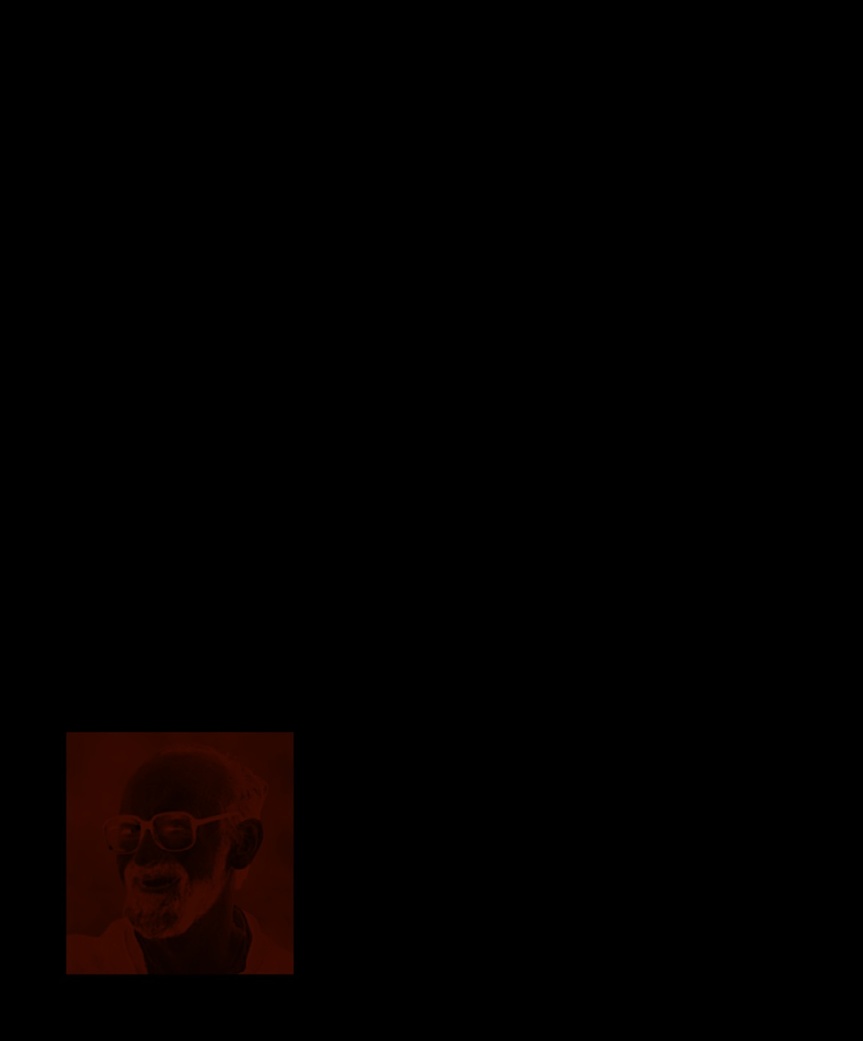The Psychology Book (80 page)
Read The Psychology Book Online
Authors: Unknown

games. After just 36 hours, one
Philip Zimbardo was born in
New York City in 1933 to a
prisoner had to be released because
The “prisoners”
rebelled against the
Sicilian-American family,
of uncontrolled crying, fits of rage,
“guards,” but the guards’ tactics became
and was a classmate of
and severe depression. When other
more aggressive. They began dividing
Stanley Milgram at James
the prisoners into groups, giving some
prisoners showed symptoms of
Monroe High School in the
rewards and others punishments.
acute distress, Zimbardo realized
Bronx. He went on to earn
the situation had become dangerous
his BA degree from Brooklyn
Sunday morning soon afterwards,
and ended the experiment.
College, New York, and a PhD
the prisoners were arrested at their
Zimbardo’s experiment showed
from Yale. He taught at several
homes, booked at a real police
that good people can be induced into
universities before moving to
station, then transferred to the
behaving in evil ways by immersion
Stanford in 1968, where he is
basement of the Stanford University
in “total situations” that have an
still a psychology professor.
psychology department, which had
apparently legitimizing ideology
In 2000, Zimbardo stated
been converted into a mock prison.
and approved rules and roles. The
that he agreed with George
implications are vast, as Zimbardo
Armitage Miller that it was
The prison environment
explains: “Any deed that any human
time to “give psychology away
to the public,” and his career
In order to make the experience as
being has ever done, however
has reflected this idea. In the
psychologically real as possible,
horrible, is possible for any of us
1980s he presented a popular
prisoners were stripped, searched,
to do—under the right or wrong
TV series on “discovering
deloused, and given uniforms and
situational pressures.” ■
psychology.“ The American
bedding upon their arrival. To
Psychological Foundation
heighten their sense of anonymity
presented him with an award
and dehumanization, they were
for Distinguished Lifetime
addressed only by their given
Contributions to General
numbers, and each had a chain
Psychology in 2000, and two
bolted around one ankle to serve as
years later he was elected
a reminder of their lack of freedom.
Our study… reveals the
president of the American
The guards wore military-style
power of social, institutional
Psychological Association.
uniforms and sunglasses (to make
forces to make good men
eye contact impossible), and carried
engage in evil deeds.
Key works
keys, whistles, handcuffs, and clubs.
Philip Zimbardo
1972
The Stanford Prison
They were on duty 24 hours a day,
Experiment
and were given complete control
2007
The Lucifer Effect
over the prisoners, with permission
2008
The Time Paradox
to employ whatever tactics they
2010
Psychology and Life
saw fit in order to maintain order.

256
TRAUMA MUST BE
UNDERSTOOD IN TERMS
OF THE RELATIONSHIP
BETWEEN THE INDIVIDUAL
AND SOCIETY
IGNACIO MARTIN-BARO (1942–1989)
IN CONTEXT
APPROACH
I
gnacio Martín-Baró made his impartial, universal approach to
claim that “trauma must be
psychology, he came to realize
understood in terms of the
that psychologists must take into
relationship between the individual
account the historical context and
Liberation psychology
and society” after witnessing first-
social conditions of the people they
BEFORE
hand the social injustices and
are studying. He believed that
violence endemic to El Salvador in
while some mental health problems
1965
Community psychology,
the 1980s. Rejecting the idea of an
reflect an abnormal reaction to
a new discipline investigating
the relationships between
individuals and communities,
arises from discussions at the
Swampscott Conference,
Because it aims to be
impartial and
Massachusetts.
universal
, mainstream psychology does not
address the way specific contexts
1970s
A crisis over the
and environments shape mental health.
relevance of social psychology,
the study of links between
social conditions, emotions,
and behaviors, erupts in
Britain, North America, and
most acutely in Latin America.
But to understand and treat mental
disorders, a psychologist should understand
AFTER
the
sociopolitical environment
1988
The Latin American
of his subjects and patients.
Institute of Mental Health and
Human Rights is founded.
1997
US psychologists Isaac
Prilleltensky and Dennis Fox
publish
Critical Psychology
,
Trauma must be understood
highlighting how traditional
in terms of the relationship between
psychology can help sustain
the individual and society.
injustice and social oppression.

SOCIAL PSYCHOLOGY 257
See also:
Lev Vygotsky 270 ■ Jerome Kagan 339
reasonably normal circumstances,
rather than considering how to
the problems specific to oppressed
awaken and drive the desire for
and exploited groups tend to reflect
justice or freedom.
a perfectly understandable and
normal reaction to abnormal
Traumatized societies
circumstances. Martín-Baró
His collection
Writings for a
The challenge is
decided that psychologists needed
Liberation Psychology
, published
to construct a new
to be more aware of how living
posthumously in 1994, captures
person in a new society.
within a difficult context affects
several decades of Martín-Baró’s
Ignacio Martín-Baró
mental health, and that they should
concerns. It addresses the use of
help the society being studied to
psychology as an instrument of war
transcend its history of oppression.
and political manipulation, the role
In the mid-1980s, he launched the
of religion in psychological warfare,
branch of liberation psychology,
and the impact of trauma and
which is committed to improving
violence on mental health. Martín-
the lives of all marginalized and
Baró studied areas where dependent
oppressed people.
economies and severe inequalities
well as its social and political
Liberation psychologists claim
had led to relentless poverty and
environment, and that individuals
that traditional psychology has
social exclusion. He examined the
must be treated with both these
many inadequacies. It frequently
psychological impact of civil war
factors in mind.
fails to offer practical solutions
and oppression in El Salvador, the
Martín-Baró focused on Central
to social problems; many of its
dictatorships in Argentina and
America, but his ideas are relevant
principles are developed from
Chile, and poverty in Puerto Rico,
anywhere social and political turmoil
artificial settings in wealthy
Venezuela, Brazil, and Costa Rica.
disrupts daily life. His humane and
countries, and so are unlikely to
Each involved a different set of
impassioned perspective draws a
translate to different situations;
circumstances, affecting the local
crucial link between mental health
it tends to ignore human moral
population in unique ways. He
and the struggle against injustice,
qualities, such as hope, courage,
concluded that the mental health
and attempts to find fresh ways of
and commitment; and its main goal
issues that arise in one context will
addressing associated psychological
seems to be to maximize pleasure,
reflect the history of the place as
issues more effectively. ■
Ignacio Martín-Baró
Ignacio Martín-Baró was born
Central America and eventually
in Valladolid, Spain. In 1959, he
becoming head of its psychology
joined the Jesuit order, and was
department. Martín-Baró was
sent to South America. There, he
openly critical of El Salvador’s
studied at the Catholic University
rulers, and in 1986 set up the
in Quito, Ecuador, and at the
University Institute of Public
Javeriana University in Bogotà,
Opinion. He and five others
Colombia. In 1966, Martín-Baró,
were murdered by an army
now a Jesuit priest, was sent to
death squad for their exposure of
El Salvador. He continued his
political corruption and injustice.
studies at the University of
Central America in San Salvador,
Key works
gaining a licentiate in psychology
in 1975. He later earned a PhD in
1983
Action and Ideology
social psychology from the
1989
System, Group and Power
University of Chicago, before
1994
Writings for a Liberation
returning to the University of
Psychology

DEVELOP
PSYCHOL
FROM INFANT
TO ADULT
